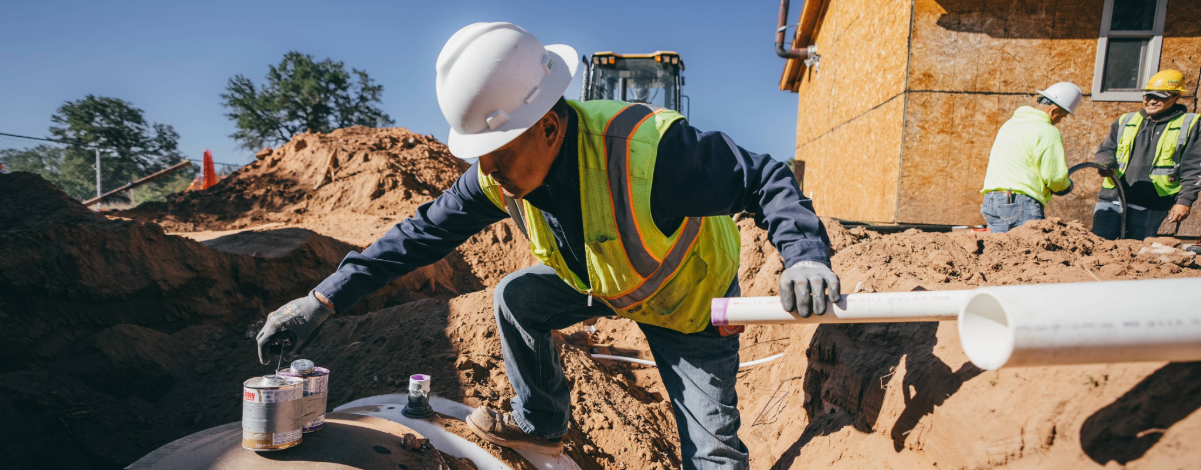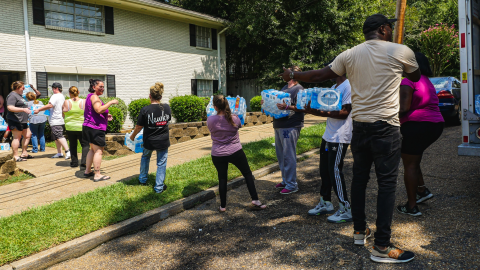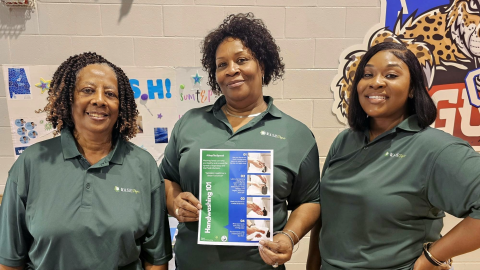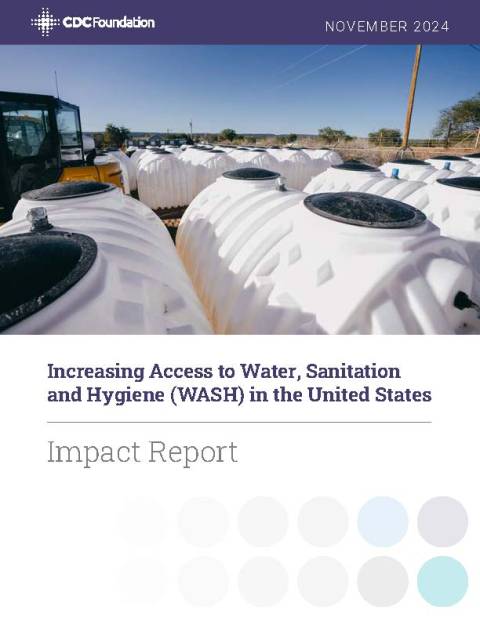
You are here
Access to Water, Sanitation and Hygiene (WASH) in the United States
BACKGROUND
Clean water and sanitation are critical for maintaining good health and preventing the spread of disease. In the United States, many people take for granted that safe water is accessible just by turning on a faucet, but today an estimated 2.2 million Americans live in homes without running water or basic plumbing. Because of aging water infrastructure and failing septic systems, tens of millions more lack adequate sanitation facilities for the safe disposal of human waste and wastewater treatment. Although water insecurity threatens the health of all communities, research shows that Latino, Black and Indigenous communities are much more likely to experience poor water and sanitation systems. Immigrants and people living in low-income and rural areas are also disproportionately affected.
PROJECT OVERVIEW
To help address the urgent and growing health problems caused by contaminated water, the CDC Foundation supported six organizations, from 2023 -2024, working to increase public awareness of water, sanitation and hygiene (WASH) issues and improve these conditions in communities experiencing limited access or unsafe water systems. The CDC Foundation funding supports organizations working in California, the Appalachia region, the Navajo Nation and urban and rural communities in the Black Belt and Jackson, MS.
These organizations are working to identify the water and sanitation needs in their respective regions and connect community members with available services. They address poor WASH conditions on the household level by increasing access to water testing, distributing water filters, installing home water systems, and establishing water delivery programs and free hygiene pantries to provide soap and other personal hygiene supplies. They also conduct outreach in multiple languages to increase awareness of the importance of safe water, sanitation and hygiene.
As part of this project, each organization also chose a representative to participate in the OpEd Workshop, a unique opportunity to work with a network of media mentors to write effective and powerful pieces about the water crisis and the work they are doing to address it.
The organizations who received support were:
- Black Belt Unincorporated Wastewater Program (BBUWP) and PEER Consulting
- Community Resource Center
- The DigDeep Right to Water Project (The Navajo Water Project and The Appalachia Water Project)
- El Sol Neighborhood Educational Center
- People’s Advocacy Institute
- West Central Alabama Community Health Improvement League, Inc.
Read our blog about how these organizations addressed the water crisis and ensure access to clean, safe water for everyone.
- Multiple Organizations
- United States of America

Read our recent story about People's Advocacy Institute and their tireless efforts to bring clean water to Jackson, MS.

Read our recent blog about West Central Alabama Community Health Improvement League and their work in rural Alabama.
